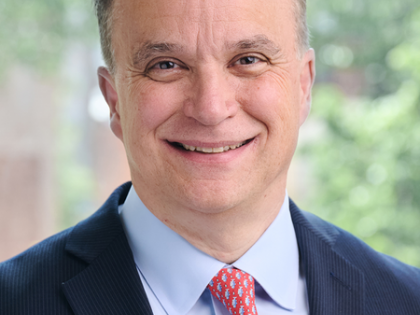US at risk of losing India as strategic partner in Indo-Pacific: Former senior Commerce Dept official
By IANS | Updated: August 8, 2025 14:59 IST2025-08-08T14:53:30+5:302025-08-08T14:59:58+5:30
Washington, Aug 8 Former US Undersecretary of Commerce for International Trade and senior foreign policy expert, Christopher Padilla, ...

US at risk of losing India as strategic partner in Indo-Pacific: Former senior Commerce Dept official
Washington, Aug 8 Former US Undersecretary of Commerce for International Trade and senior foreign policy expert, Christopher Padilla, has warned that the ongoing trade tensions could pose a risk of long-term damage to the India-US relationship.
"I'm concerned that for the sake of short-term issues, we're putting this relationship at risk," Padilla told IANS.
He also feared that "there will be a long memory" of US actions in India, potentially leading to "a questioning of whether the United States is a reliable partner".
"I know from working with colleagues in India over many years that these slights will not be quickly forgotten, and saying that India, which is one of the fastest growing economies in the world, is a dead economy. That doesn't help," he noted.
Padilla, who served in the George W. Bush administration and is now a Senior Advisor at Brunswick, a global advisory firm, highlighted that the current crisis stems from President Donald Trump’s actions against India’s core interests – the pressure to open up the agriculture and dairy sectors and New Delhi’s independent foreign policy.
"The difficulty of opening the agriculture market, given the structure of the Indian economy, is a core interest, and the other is the independence of Indian foreign policy," he told IANS.
On the potential impact of US tariffs on India’s exports, Padilla argued that "it will be painful", but Indian exporters could adapt with alternative markets.
"When you look at some of the key Indian exports, there are alternative markets for things like precious stones, or textiles...People have talked a lot about the number of iPhones being made in India. Well, there's a global market for iPhones. If they can't be sold in the United States, they can be sold in other places."
On foreign policy, he highlighted that India’s relationship with Russia has always been an "irritant" in India-US ties, but Washington had been willing to “live with it” for the larger strategic importance of India vis-a-vis China. But that strategy is undergoing a major shift.
Padilla expressed surprise over how the US is "treating China at the moment, much more favourably than India".
"So, we've got this strange situation. Where we're seeing significant damage to an important strategic relationship between the US and India, while at the same time, the United States is making apparent concessions toward its most significant strategic competitor in the world," he told IANS.
On the possibility of US coercion driving India closer to Russia and China, he believed that there are "internal contradictions in terms of foreign policy interests" among the three countries but stressed that it’s "not in the interest of the United States to drive countries toward closer collaboration".
Padilla, who was part of the civil nuclear deal and other trade negotiations with India during the mid-2000s, asserted that Washington’s arm-twisting tactics that led to the capitulation of other countries were never going to work with New Delhi.
"India is a very vibrant democracy. I've experienced that in my dealings with India over many years. We're not dealing with a relatively small country in Latin America or Southeast Asia that might be more willing to compromise on core interests,” he noted.
Looking ahead, the former US senior official acknowledged that “it’s going to be difficult for both sides to find a way to go back away from confrontation", but he was confident that "it can be done".
"We have got 20 years of a strong relationship here. There's a firm base of common interest. I'm hoping that things will calm down. We have bigger interests at stake here than just trade and dairy products," he told IANS.
Padilla concluded with a piece of advice. "Buckle up, because this isn't going to reach some equilibrium where everything is going to be normal again, I think for the next three and a half years, the only certainty is more uncertainty."
Disclaimer: This post has been auto-published from an agency feed without any modifications to the text and has not been reviewed by an editor
Open in app